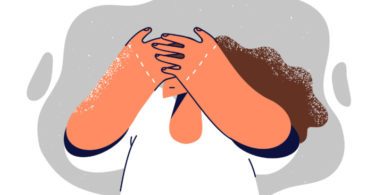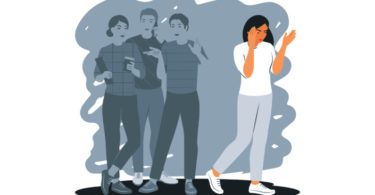Journalists work in high-stress environments, particularly when they are facing political censorship, arbitrary arrests, lawsuits and physical threats. These settings can create physical and mental reactions such as acute stress disorder that can lead to further lasting symptoms. In this article, a clinical psychologist gives advice and techniques to recognise and tackle acute stress disorder.
Understanding stress symptoms
Anxiety and worry are common emotions journalists can feel when reporting in high-stress work environments. By understanding the signs and symptoms related to stress, journalists can learn more about their mental health and better deal with the symptoms that may impact their daily lives.
Acute Stress Disorder (ASD) refers to a short-term mental and physical response triggered when an individual experiences a stressing or traumatic event. Each person may present different degrees of physical and psychological reactions. Symptoms, which usually last from a few days to a month, may include irritability, feelings of guilt and excessive sadness, difficulty concentrating, insomnia, forgetfulness, a desire to be alone, loss of interest in activities, and even alcohol and drug abuse.
Journalists suffering from ASD may use an “avoidance process”, meaning that they would try to escape anyone or anything related to the traumatic event. They may also appear “over-vigilant” and easily nervous. Physical responses comprise headaches, loss of appetite or overeating, night sweats, chills, abdominal pain, diarrhoea, muscle tremors, and decreased energy.
When presenting ASD signs, especially if the symptoms are long-lasting, it is important to seek medical assistance. As it may be difficult to access appropriate medical care in some places, there are some techniques that can help journalists deal with mental health issues on their own.
Self-relaxation techniques
When journalists face a high-stress situation, they may need time to process and handle their emotional reaction to the event they went through. Self-relaxation techniques can help journalists accept the emotions they may feel and relax themselves. It is recommended to turn off all electronic devices and play soft music when doing the following exercises.
- Deep-breathing exercise consists of breathing in for 10 seconds, holding one’s breath for 10 seconds, and breathing out for 10 seconds, then repeating the above steps for 10 times while trying to keep one’s mind as blank as possible.
- Calming method using senses consists of finding 5 colours in one’s surroundings, feeling the surface of 4 different objects, listening to 3 different sounds, and tasting 2 different foods or drinks. Focusing on specific things as such can help to temporarily put troubles aside and to relax.
- Mindfulness consists of paying attention to all the details in one’s surroundings, focusing on the moment while avoiding judgmental thoughts on the current situation, and accepting this moment with an open and kind attitude towards oneself and the different protagonists around them.
Self-care and healthy routines
Self-care and healthy routines can help to reduce acute stress symptoms and deal with mental health issues. Journalists should:
- Maintain overall health, by eating nutritious food, drinking plenty of water, getting adequate sleep, exercising moderately, avoiding excessive intake of caffeine or alcohol, and avoiding smoking.
- Manage time properly, by setting a timetable, keeping a regular life routine, setting small achievable goals, and avoiding chasing too much information at once.
- Conduct positive introspection, by trying to understand their own thoughts, and reminding themselves of the brilliance and important things in their lives.
- Surround with loved ones, by sharing their experience with family and friends, and by opening up about their emotions.
This article is based on a training session for journalists and press freedom defenders previously organised by RSF in March 2023.








